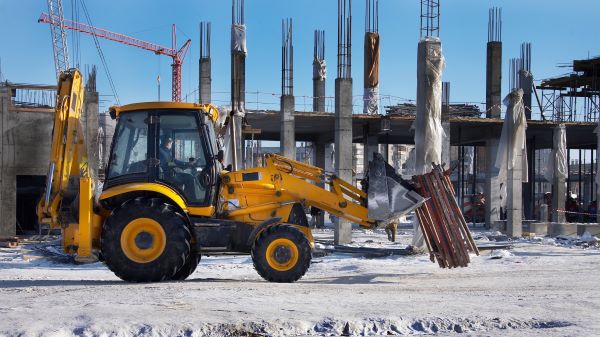Blog
Cold Contractors: Preparing for the Challenges of Winter Construction

Certain hazards are present at any construction site. Harsh winter months magnify these risks and can present unique challenges to contractors on the job site. Fortunately, many of these risks can be mitigated by simply taking a few extra precautions when you gear up for cold weather work.
Why Are Winter Construction Projects More Dangerous?
There are two areas of concern when discussing the dangers of cold weather projects. The first is the increased risks of slips and falls. Workplace accidents like these are already a major source of injuries at construction sites. However, snow and ice make them even more likely.
The other concern when completing work in the cold is the increased risk of cold stress. Prolonged exposure to the cold without the proper equipment can decrease job performance. It can also contribute to injuries and even frostbite in extreme conditions.
Ways to Improve Worksite Safety
Improving worksite safety should always be at the forefront of an organization's goals. Having clearly defined requirements in place and planning ahead can help to keep your site safe for contractors and guests. Monitoring local forecasts and weather projections can also help contractors to prepare for frigid days.
After a snowfall, it’s a good idea to take preventative measures and clear any pathways from snow and ice. Scaffoldings and other walkways put workers at an increased risk of a fall. As a result, these places should be high on the priority list when clearing snow.
It is also important that the cleared snow is not piled too high. This can obstruct the view of employees or vehicles or cover up unseen hazards, like nails left on the ground.
Contractors can also improve worksite safety by storing materials on wooden pallets. This elevates them off of the ground and prevents them from freezing or sticking. Materials that are frozen in place will slow work progress. These materials can also obstruct access to areas of the job site.
Next, site managers should turn their attention to mitigation of cold stress. They can do this through the use of construction tents and portable heaters. Construction tents can help to shield workers from chilling winds.
Portable heaters are more efficient when they are used inside of a construction tend. However, it is vital to place heaters only on fire-resistant material and to monitor them carefully during use.
How to Improve Worker Safety
Quality training and education are a must when it comes to improving worker safety. This training should include a heavy focus on the signs and symptoms of cold stress. By training your workforce to recognize these indicators, contractors can aid in preventative measures. Employees will also better understand when treatment is necessary.
OSHA has taken steps to assist in this process by creating a cold stress card. This card is an easy-to-use training tool that you can pass on to subcontractors and other employees. These reference cards can help an individual to recognize the signs of cold stress. A prompt response to early signs of cold stress can reduce the risk of serious injuries on the job site.
In addition, project managers should closely monitor their workers for symptoms of cold stress and consider mandating the use of insulated outerwear. Workers should wear many layers underneath their insulated clothing, as well.
Even the best gear is not enough to protect contractors in harsh conditions. As an added safeguard, you should encourage workers to take frequent breaks in a warm area. Site supervisors can offer warm beverages, such as hot chocolate or coffee, in break areas. These drinks can help to counteract the stress of the cold weather.
Virginia is no stranger to harsh winters, which are usually ushered in by unforgiving Nor’easters. With the right training, however, you can optimize your safety during all seasons. RocketCert can help you obtain the training you need to get or renew your Virginia contractor's license. We offer industry-leading education and certification options through our user-friendly online platform.
